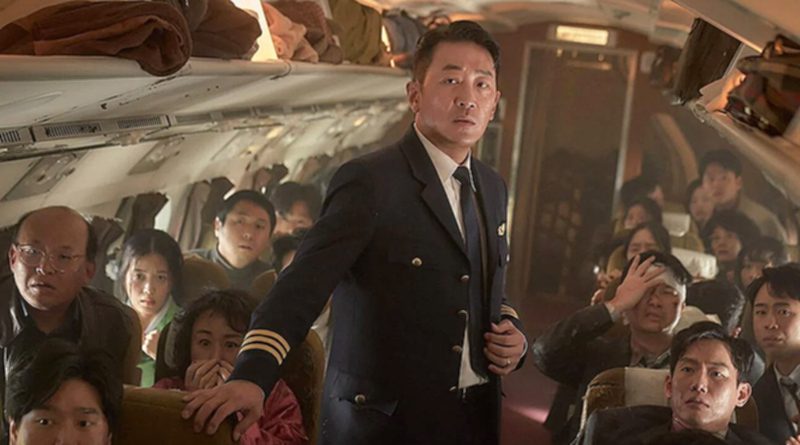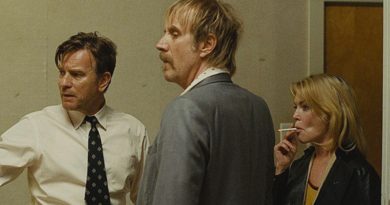Hijack 1971 하이재킹 (2024) Review: Ha Jung-Soo and Yeo Jin-Goo Elevate This Otherwise Familiar But Tense Plane-Hijacking Thriller
Hijack 1971 marks one of this year’s roster of plane hijacking movies that already had Air Force One Down (U.S.) and Yodha (India) released earlier in February and March respectively. Then, there’s the upcoming Andy Lau-starred High Forces from China currently slated for an October release.
For this South Korean action thriller, originally released in its native country on June 21 before its subsequent international rollout in selected countries, first-time director Kim Seong-Han, previously an assistant director in 2017’s 1987: When the Day Comes, inspired his movie from the true events that occurred in 1971. The movie version stars Ha Jung-Woo as Tae-In, a Republic of Korea Air Force (ROK) fighter jet pilot who ends up disobeying his superior’s order to shoot down a hijacked commercial airliner of YS-11 en route to North Korean airspace in 1969.
His action got him suspended and years later, the disgraced Tae-In has since working as a first officer for Korean Airlines passenger plane F-27 with Gyu-Sik (Sung Dong-Il) as his captain and Ok-Soon (Chae Soo-Bin) as the chief stewardess. On the fateful day of January 23, 1971, Tae-In happens to be on duty at the time during the takeoff from Sokcho Airport on its way to Seoul, where a young man named Yong-Dae (Yeo Jin-Goo) is onboard to hijack the plane mid-air. Armed with homemade grenades, he threatens to blow everyone unless the plane re-directs its course to North Korea. His motive has to do with the 1969 incident that inspired him to do the same since the hijacker of Flight YS-11 at the time received a hefty monetary reward from the North Korean government.
Kim Seong-Han sticks to the familiar storytelling beats typically seen in such a plane-hijacking thriller. The checklist is all here as we have an obligatory guilt-ridden/disgraced protagonist facing the ordeal while trying to save the day, a hijacker who’s willing to die to get what he wants and of course, the rest of the plane crew and passengers. The latter consists of various archetypes from an arrogant businessman to a newlywed couple, a shy middle-school young student with an English teacher and an innocent old lady who insists on carrying her live chicken onboard.
None of these side characters really matter since Kim mostly relegates them to thankless roles but at least he doesn’t forget to focus on the two primary characters: Tae-In and Yong-Dae. The former has Ha Jung-Woo deliver a typically engaging performance while the latter equally excels in his solid supporting turn. Both characters are given sufficient backstories, notably on Yong-Dae’s grim past being labelled as a “commie” and how he suffers from harassment by the local authorities. Flashbacks are used sparingly without deterring too far from the movie’s single-set location within the confines of a plane.
Kim also does a good job of escalating tension-filled confrontations between them both verbally and physically. I’m glad they don’t overact or succumb to histrionics with their subtly restrained performances, even though Kim can’t help himself filling in some melodramatic moments, particularly during the third act.
Kim keeps his movie mostly lean at 100 minutes and other than proving his directorial prowess in handling some of the tense moments in the plane, there’s a particular set piece worth mentioning here: a scene where Tae-In takes a bold risk of manoeuvring the plane that reminds me of Robert Zemeckis’ Flight starring Denzel Washington.
But I don’t get why Kim feels the need to opt for the stylistic visual choice during the earlier hijacking moment as Yong-Dae begins to take control of the plane. It was an oddly misplaced scene for a movie that leans predominantly on the gritty filmmaking approach. The special effects are adequate with some of them looking dodgy while the overall production design does capture the antiquated look and feel of its 1970s era.





